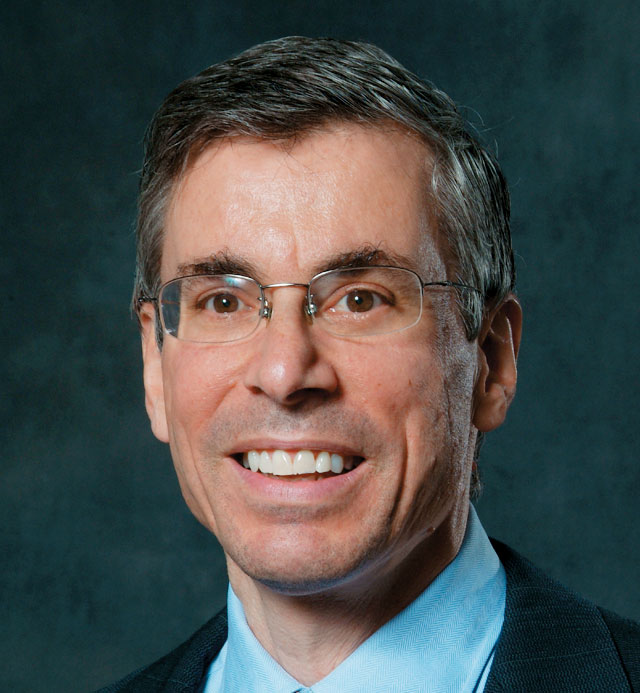-
Q&A with Affiliate David Dranove
Earlier this year, Analysis Group welcomed Dr. David Dranove as an Academic Affiliate to the firm.
Dr. Dranove, the Walter J. McNerney Professor of Health Industry Management and a professor of management and strategy at Northwestern University’s Kellogg School of Management, is widely recognized for his research, especially in its application to competitive analysis in the field of health care. Dr. Dranove recently provided testimony in challenges to proposed health care mergers brought by the US Federal Trade Commission and the US Department of Justice. (See inset.)
What areas of research are you most known for, and what strand of research are you most proud of?

David Dranove, Walter J. McNerney Distinguished Professor of Health Industry Management; Professor of Management and Strategy, Kellogg School of Management, Northwestern University
Dr. Dranove: My general areas of expertise are industrial organization and competitive strategy. Within these subfields, I’m known principally as a researcher who studies health care markets, and particularly provider markets (i.e., physicians, hospitals, etc.). I’ve authored or coauthored dozens of articles and books in this area. I’ve also written extensively about the economics of business strategy, and have authored a textbook on that topic. I am most proud of my work on provider competition. My early studies challenged the conventional wisdom that competition among providers “didn’t work,” and my recent work sheds more light on provider/insurer negotiations.
You’ve talked about “bending the cost curve” in health care. How much success have we had in bending the cost curve, what has held us back, and what are the prospects going forward?
Dr. Dranove: That’s a complicated question. I teach a 10-week course on this and still don’t have all the answers. Partly, the premise is wrong. Technological change is partly to blame for rising costs, but we would be unwise to sacrifice life-enhancing innovations on the altar of cost containment. That said, we don’t do a particularly good job of “producing” health care services, and we often make poor choices about what services to purchase and where to purchase them from. There are too many opportunities for improvement to answer here, but I will note that big data, modern IT, and social media hold many opportunities for promoting prevention, consumerism, and improved provider incentives. We have known about the problems plaguing health care systems for decades; we may finally have the wherewithal to do something about it.
You have testified in a number of interesting cases. How is testifying different than the academic work that you do, and what do you enjoy about testifying as an expert?
Dr. Dranove: As a business school professor, I have always been eager to have an impact on the real world. Testifying is thrilling because you get to put your own research ideas on display before an important non-academic audience. But, precisely because it is a non-academic audience, one must find a way to simplify often complex ideas without sacrificing intellectual rigor, and one must be careful when dealing with the kinds of ambiguities that are part and parcel of academic research, but which can be landmines in the courtroom. ■
-
Recent Testimony
Analyzing Competitive Impact in Anthem/Cigna and St. Luke’s
Dr. Dranove recently served as the testifying economist in two notable regulatory matters:
Dr. Dranove testified (and was supported by an Analysis Group team) on behalf of the US Department of Justice (DOJ), which sought to block the proposed merger of Anthem and Cigna, the largest announced merger in the history of the health insurance industry (US et al. v. Anthem Inc. et al.). Citing Dr. Dranove’s testimony, Judge Amy Berman Jackson of the federal district court for the District of Columbia ruled that the proposed merger would violate federal antitrust laws, likely resulting in higher prices, decreased competition, diminished innovation, and fewer health insurance choices for consumers. The ruling was upheld by the US Court of Appeals for the DC Circuit, and Anthem subsequently abandoned its plans to merge with Cigna. As the DOJ’s primary expert witness, Dr. Dranove testified on market definition, the impact on market concentration, competitive effects including the loss of innovation, the impact on medical costs, and entry.
In Saint Alphonsus Medical Center - Nampa et al. v. St. Luke’s Health System Ltd., the Idaho Office of the Attorney General and the Federal Trade Commission (FTC) contested St. Luke’s acquisition of Saltzer Medical Group – the largest independent, physician-owned, multispecialty group in Idaho – alleging that the acquisition would substantially lessen competition for health care services, in violation of federal and state antitrust law. Dr. Dranove testified on behalf of the FTC, and concluded that Nampa was a separate geographic market from Boise when it came to primary care, and that post-merger, the result would be a highly concentrated primary care market in Nampa. US District Judge B. Lynn Winmill agreed and ordered St. Luke’s to unwind the acquisition.
